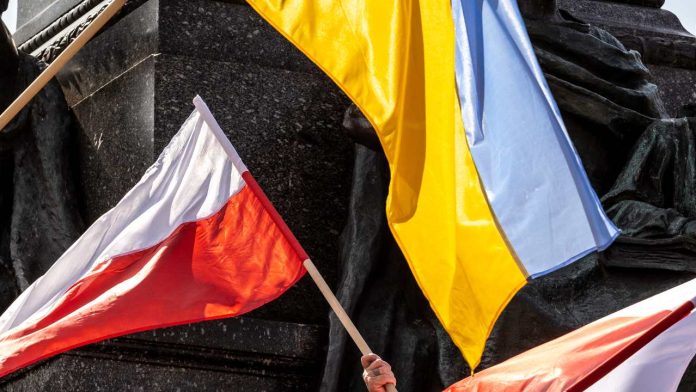The changes in the Ukrainian army were obvious and frankly remarkable, but ammunition shortages remained a serious problem, Prof. Paweł Kowal, Chairman of the Parliamentary Foreign Relations Committee in the Polish Parliament, and nominee for Special Government Representative for Ukraine’s Recovery, told the Kyiv Post.
Kowal noted that the mood over the past two years of military conflict in Ukraine had changed, with much of the enthusiasm “definitely gone.”
People have gotten used to war, which is a natural and, paradoxically, beneficial psychological process.
The professor claimed that the war-torn country had suffered huge casualties and the war had claimed many lives. Over 60 per cent of Ukrainians report having lost a loved one, mourning someone’s death or being separated from someone close to them, which also fuels Ukrainians’ will to fight.
When asked why the professor said it was good for people to get used to war, he responded that it was “a way to avoid living in a constant state of trauma.”
“God – or nature, if you prefer – gave us the innate ability to adapt to war and bear the mental burden that comes with it. On the other hand, we need to feel motivated in order to fight. It’s a struggle between two elements. But it’s not the Ukrainians who need to be motivated – it’s the West.”
Kowal stated that “there’s no question that Ukraine isn’t getting as much ammunition as it needs.” Noting the importance of US aid, he also stated that the EU would provide several hundred thousand instead of the previously promised one million units.
Congressional support is vital, not least because the countries of Central and Eastern Europe put great confidence in American promises […] Ideally, the West should provide several million units.
At the outbreak of the war in Ukraine in February 2022, Poland provided crucial military aid to the country and welcomed millions of refugees. Recently, however, there have been overdue challenges between the countries, including a conflict over grain, Kowal emphasises.
“I wouldn’t go so far as to call it a conflict; that’s a term used by commentators and the media. There’s nothing particularly extraordinary about the farmers’ protests in Poland. Similar protests have taken place across the European Union for as long as I can remember.”
Commenting on the grain crisis in Poland, Kowal noted that grain prices had fallen and the country had a surplus of production. The problem was mainly between Poland and the European Commission and much less related to Ukraine itself, he stated.
As for the joint meeting of the Polish and Ukrainian governments scheduled to be held in Warsaw later this month, he argued that the focus would likely be on solutions for particular sectors, including defence.
As I said, ammunition and defence co-operation is crucial. Poland is Ukraine’s largest [EU] neighbour, and our co-operation in this area should be especially close.
Emphasising the 25th anniversary of Poland’s accession to NATO, the professor said that should be used to “clearly articulate the need to bring Ukraine into the alliance’s fold.”
Responding to the issue of the need to give Ukrainians the right to vote in local elections in Poland, Kowal declared that the right to vote in elections belonged to “citizens, first and foremost,” and also noted that the issue was not relevant at the moment, since local elections would be held in April, while the next ones would be held in five years at the earliest.
“There will come a time for that debate. It might be a good idea, but there are plenty of other issues right now that require our attention, and this discussion threatens to spark pointless arguments.”
Describing the picture of rights and privileges for Ukrainian refugees, the professor noted that “everyone who lives, works, and pays taxes in Poland has the same rights as every Pole and cannot be discriminated against.”
These are good policies. Poles want Ukrainians to feel welcome in Poland. Some of them will probably go back to Ukraine, while other will settle down here and start families.
Poland and Ukraine are at a historic moment when “there is always a window of opportunity for change.” Discussion of relations between the two countries on the basis of protests and blockades on the border is contrary to the truth, as these protests “are largely targeted at policies enacted by the European Commission.”
